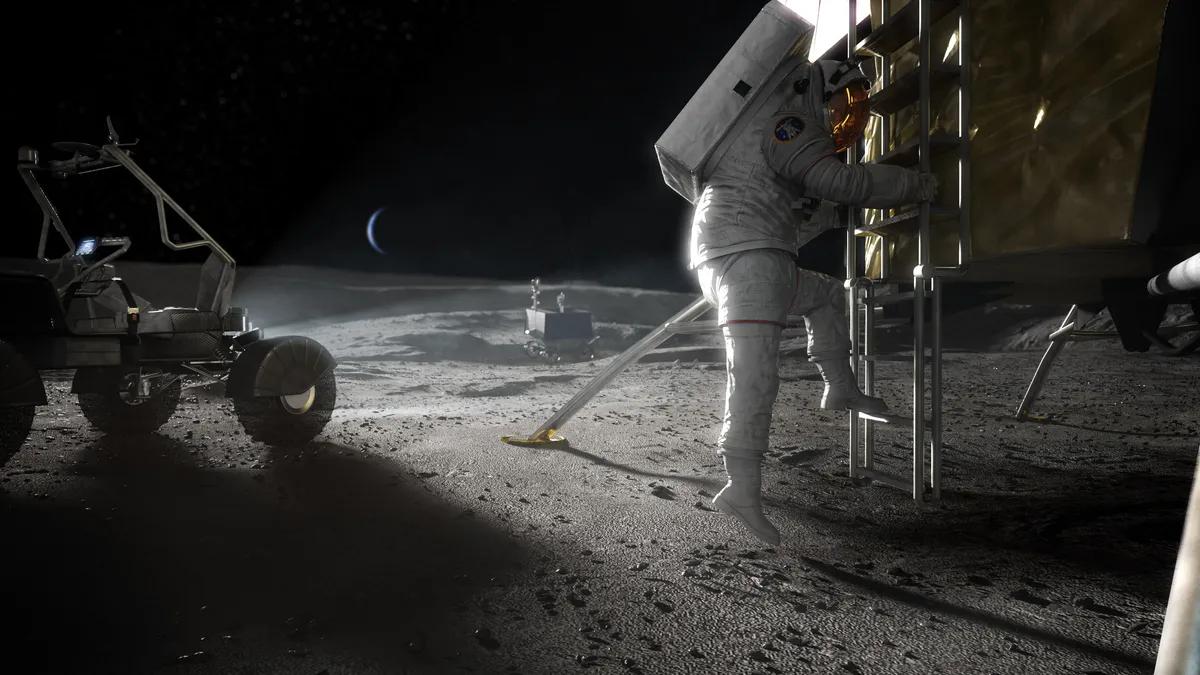
On June 5, 2023, U.S. Senator Ted Cruz (R-Texas), who chairs the Senate Committee on Commerce, Science, and Transportation, announced a comprehensive set of legislative directives aimed at enhancing the United States' position in the ongoing space race with China. This new initiative is part of the Senate Republicans’ budget reconciliation bill and emphasizes the urgency of achieving dominance in space exploration, particularly targeting missions to the Moon and Mars.
The proposed legislation allocates nearly $10 billion in additional funding over current levels to bolster initiatives that will help the U.S. outpace China in the new space race. This funding is crucial for supporting key aspects of NASA's Artemis lunar program, future Mars missions, and the ongoing operations of the International Space Station (ISS).
The legislation introduces a significant element known as Section 0005, which proposes $9.995 billion for fiscal year 2025. This funding will be directed toward vital infrastructure improvements and projects in space exploration. Here’s a breakdown of how the funds will be allocated:
Mars Telecommunications Orbiter: $700 million will be dedicated to the commercial procurement of a Mars Telecommunications Orbiter, which is essential for both NASA's Mars Sample Return campaign and future crewed missions to Mars.Gateway: $2.6 billion is earmarked to fully fund the Gateway space station, a critical component of NASA's Artemis architecture.Space Launch System (SLS): $4.1 billion will support the development of SLS rockets for the upcoming Artemis 4 and Artemis 5 missions, ensuring the United States retains the capability to send astronauts to the Moon.Orion Crew Vehicle: $20 million is allocated for the continued procurement of the fourth Orion capsule, needed for Artemis missions.International Space Station: $1.25 billion will sustain ISS operations, ensuring it remains functional until its planned retirement in 2030.U.S. Deorbit Vehicle: $325 million is set aside for creating a vehicle that will safely deorbit the ISS at the end of its operational life.In addition to direct funding for missions, the bill proposes $1 billion for infrastructure improvements across NASA’s human spaceflight centers. This funding is crucial to address NASA’s significant infrastructure backlog, which exceeds $5 billion. The enhancements will focus on facilities that support the U.S. efforts to outpace China in lunar and Martian exploration.
Specific allocations for infrastructure improvements include:
Stennis Space Center: $120 million for essential repairs and upgrades, crucial for rocket engine testing.Kennedy Space Center: $250 million to upgrade infrastructure at NASA’s primary launch complex.Johnson Space Center: $300 million aimed at enhancing mission control and overall space operations.Marshall Space Flight Center: $100 million allocated for improvements in propulsion research facilities.Michoud Assembly Facility: $30 million for necessary repairs and upgrades.Section 0005 also stipulates that at least 50% of the funds must be obligated by September 30, 2028, with full allocation required by September 30, 2029, and all associated outlays by September 30, 2034. The Congressional Budget Office estimates that approximately $9.96 billion will be obligated and expended within a decade, underscoring the urgency and commitment behind this initiative.
For those interested in the detailed legislative text, it is accessible online. Additionally, join our Space Forums to engage in discussions about the latest missions, skywatching events, and more!
If you have news tips, corrections, or comments, please reach out to us at community@space.com.